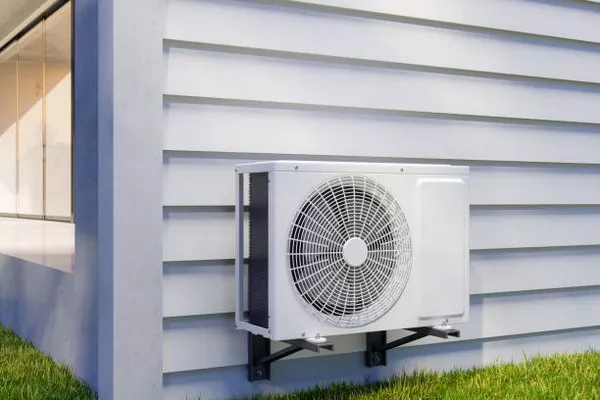In the world of modern convenience, refrigeration systems have become an indispensable part of our daily lives. From preserving food and medicines to advancing various industries, these systems play a crucial role in maintaining the quality, safety, and longevity of perishable goods. This article explores the multifaceted purpose of refrigeration systems, shedding light on their importance across different sectors and their significant impact on society.
The Basics of Refrigeration Systems
A refrigeration system is a complex arrangement of components designed to transfer heat from one location to another, effectively cooling a designated space. The heart of the system is the refrigerant, a chemical compound that undergoes a cycle of evaporation and condensation to facilitate heat exchange. The components of a refrigeration system include a compressor, condenser, evaporator, and expansion valve, all working in harmony to achieve the desired cooling effect.
Preservation of Perishable Goods
The primary purpose of refrigeration systems is the preservation of perishable goods, particularly food and pharmaceuticals. By maintaining low temperatures, these systems slow down the growth of bacteria, yeast, and molds that cause spoilage. In the food industry, refrigeration prevents nutrient degradation and preserves the texture, flavor, and appearance of products. It extends the shelf life of fresh produce, dairy, meats, and frozen foods, reducing food wastage and enabling efficient distribution across vast distances.
In the pharmaceutical sector, refrigeration systems ensure that temperature-sensitive medications and vaccines remain viable and safe for consumption. Proper storage temperatures prevent degradation of active ingredients, maintaining the efficacy of drugs and vaccines, which is crucial for public health.
Industrial Applications
Beyond the realm of food and medicine, refrigeration systems are instrumental in various industries, enhancing manufacturing processes and enabling scientific advancements. One notable application is in the chemical industry, where precise temperature control is required for chemical reactions. In laboratories, refrigeration systems help maintain stable conditions for experiments and storage of sensitive materials.
The electronics industry benefits greatly from cooling systems that regulate the temperature of electronic components during manufacturing and operation. This prevents overheating and prolongs the lifespan of devices, ensuring their reliability and performance.
Commercial and Residential Cooling
Refrigeration systems also find extensive use in commercial and residential cooling, providing comfort in homes, offices, retail spaces, and other establishments. Air conditioning systems utilize refrigeration principles to cool and dehumidify indoor air, creating pleasant and productive environments. By removing excess moisture from the air, these systems improve indoor air quality and prevent the growth of mold and mildew.
Energy Efficiency and Environmental Concerns
As society places increasing emphasis on sustainability, energy efficiency and environmental considerations have become integral to the design and operation of refrigeration systems. Traditional refrigerants like chlorofluorocarbons (CFCs) were phased out due to their contribution to ozone depletion. Subsequently, hydrochlorofluorocarbons (HCFCs) were introduced as transitional alternatives, but they too were found to have detrimental effects on the environment.
Modern refrigeration systems now employ hydrofluorocarbons (HFCs) and natural refrigerants like ammonia, carbon dioxide, and hydrocarbons. These alternatives have significantly lower global warming potential and ozone depletion potential, aligning with international efforts to combat climate change. Moreover, advancements in technology have led to the development of more energy-efficient compressors, heat exchangers, and insulation materials, reducing the carbon footprint of refrigeration systems.
FAQs
Q1: How does a refrigeration system work?
A refrigeration system works by transferring heat from a lower-temperature area to a higher-temperature area, using the principle of evaporation and condensation of a refrigerant. The refrigerant absorbs heat from the target space (evaporator), undergoes compression to increase its temperature, releases the heat in the condenser, and then expands through an expansion valve, starting the cycle anew.
Q2: What are some common challenges in maintaining refrigeration systems?
Common challenges include refrigerant leaks, which can affect system efficiency and contribute to environmental damage. Properly disposing of old refrigerants is another challenge, as mishandling can release harmful substances into the atmosphere. Additionally, maintaining consistent temperatures in various parts of a cooling space and preventing frost buildup are ongoing concerns.
Q3: Are there alternatives to traditional refrigeration systems?
Yes, there are alternatives like absorption refrigeration, which uses heat as the primary energy source instead of electricity. Additionally, thermoelectric cooling utilizes the Peltier effect to achieve cooling without refrigerants. However, these methods are often less efficient and have limited applications compared to vapor-compression refrigeration.
Q4: How do refrigeration systems impact food safety?
Refrigeration systems play a critical role in maintaining food safety by inhibiting the growth of pathogens and spoilage microorganisms. They help prevent foodborne illnesses and extend the shelf life of perishable goods, ensuring that consumers have access to fresh and safe food products.
Q5: Can refrigeration systems be used for renewable energy storage?
Yes, refrigeration systems can be adapted for energy storage through methods like cryogenic energy storage. Excess energy from renewable sources can be used to cool and liquefy air, which can later be allowed to evaporate, driving a turbine to generate electricity during peak demand periods.
Conclusion
The purpose of refrigeration systems extends far beyond keeping our food and drinks cold. These systems are the backbone of various industries, enabling scientific advancements, preserving perishable goods, and enhancing our overall quality of life. As technology continues to evolve, so too will the efficiency and environmental friendliness of refrigeration systems, ensuring that they remain a vital tool for progress in the modern world.

